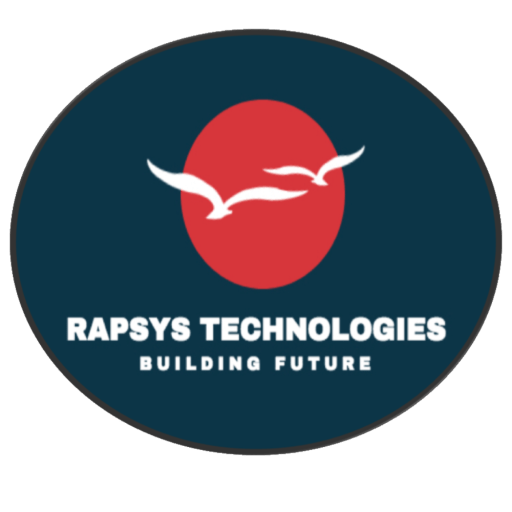The Jobs Of The Future
Introduction
Skills and Jobs of the Future
Securing the people you need to succeed.
It’s already difficult enough to bridge skills gaps in traditional roles, and even more so in today’s candidate-driven market where vacancies outweigh qualified personnel.
Governments are also urging companies to bring forward their hiring plans to prevent the ‘fading of skills’, which would potentially create a lasting impact on our local workforce’s ability to keep up with business demands.
But what about the skills that are needed in a rapidly evolving and highly volatile economy? Jobs that barely existed ten years ago are becoming increasingly critical to the world of work in the future, from artificial intelligence (AI) to data storytelling, from business psychology to financial wellness coaching.
While the COVID-19 outbreak has shifted the labour demand dynamics in the short-term, the longer-term impact on both technical and soft skills demands could only be greater.
“If you can dream it, you can do it.”
Skills and Jobs of the Future
The Jobs of the Future
According to the World Economic Forum’s ‘The Future of Jobs Report’, by 2020 more than a third of the desired core skill sets of most occupations will consist of skills that are not yet considered crucial to the job.
Automation, workforce ageing and the rising unemployment rate as a result of COVID-19 have sparked public debate and raised valid concerns over the future of work. Society and its leaders are acknowledging that things will never return to normal and are finding their role in fostering economic growth and ensuring decent work, fair pay and adequate social security.
Even though the labour market looks like it is in limbo right now, the reality is that business restructuring and digitalisation are still happening, just not all at the same time. Companies and professionals that will emerge stronger from this pandemic are those that have been given the opportunity and are willing to take the dive.
The future of work is shaped by many factors, from technological to institutional and cultural. According to the ‘Emerging Jobs: Singapore’ report published by LinkedIn, the top five emerging jobs in the future are data scientist, cybersecurity specialist, user experience designer, head of digital and content specialist.
Besides data-driven roles, there is a focus on increasing climate change and green economy jobs. We’ve already observed those changes in sectors such as banking and financial services, construction and property as well as energy and commodities.
Out of them all, ‘AI specialist’ sits at number one on the list of the fastest-growing jobs. The business impact of AI is already evident in our daily lives, from online search to on-demand TV. Transport and logistics are set to be turned on their head by the advent of driverless vehicles, for example. This creates a huge demand for people who can design and manage this new generation of logistical and technological systems. And yet, this is only the beginning.
A considerable amount of traditional jobs like accountancy, finance, manufacturing and even medical diagnosis could also be taken on by self-learning AI. People would still be very much part of the process, but their responsibilities and focus would switch from hands-on delivery to the development, training and oversight of the machines.
How are Skill Demands Changing?
The Jobs of Today
1. Software Developer
2. Clinical Researcher
3. Data Manager
4. Cyber Security Specialist
5. Risk and Compliance Specialist
The Jobs of Tomorrow
1. Delivery Drone Pilot
2. Robotics Engineer
3. Animation Specialist
4. Artificial Intelligence Architect
5. Alternative Energy Specialist
Lead with Change

On the management level, professionals will need to judge the strategic potential of emerging technologies with AI and project manage the delivery of new systems capabilities. This is leading to a growing demand for chief innovation officers (to lead innovation and the commercialising of new technology) and chief digital officers (to manage change).
These capabilities are also becoming core skill sets for all senior executives, especially as many companies may not have the resources to maintain specialist posts for the long term. It will also be likely for job responsibilities and titles to change significantly at the management level in the next few years.
For example, the role of a chief financial officer could evolve to that of chief finance analytical officer. This ‘new role’ would require the C-suite to use data intelligence and calculated analytics to make informed decisions that will bring value to the business. It has also been highlighted that 41% of their time will be spent on non-financial related activities such as performance management, organisational transformation and keeping up to date with the financial tech trends.
After senior management, managers and executives in the junior to middle management level will similarly be evaluated for their skills and how they can contribute to the business moving forward. One of the key workforce planning challenges that companies are facing right now is having to judge and decide what skills they will need to keep within the business.
Lead with Work
In an interview for Randstad’s ‘Standing Out: Insights from organisations with great employer brands’, Philips’ Head of Workforce Strategy Maarten Hansson said, “As we tap into the gig economy, the HR focus is shifting from managing people to leading work. We need to find the most effective way to engage with the right people and get the work done.”
Martina De Marinis, Philips’ Global Campaign Manager, recruitment marketing and employer branding, expanded further on this strategy, “A key part of this is showing that working with us isn’t just another assignment, but a project that can inspire and help them to progress their freelance career. Examples of the messages include ‘don’t just accept a new project, accept a challenge’ and ‘surprise yourself with an assignment at Philips.”
Yet, change is never easy. It is common to face resistance and hesitation as some would prefer to see results before committing themselves to it. This is especially true for radical changes that we might see soon.
One of the key workforce planning challenges is knowing what particular skills you would need within your business. For example, the AI specialist role that heads LinkedIn’s fastest emerging jobs list covers many thousands of distinct job specifications. HR professionals will need to work closely with the management and business teams and be adept at making these business- specific judgements with regards to their talent strategy.
The other key challenge is headcount. Too many people and the business is neither efficient nor productive; too few and a toxic culture may manifest itself. Some indication comes from banking group NAB, which is looking to hire nearly 2,000 data scientists, AI experts and other tech specialists as part of a major transformation of its business. That’s more than 5% of its workforce.
It is no secret that tech specialists are already in short supply. Those who were equipped with in-demand skills could still find a job and negotiate for a salary increment even when COVID-19 was at its peak. Companies that are seeking such talent struggle to bring in the numbers they need. That is why contingent and contract personnel are going to be so important.
Philips is a leading health technology company with an ever-increasing demand for technical specialists in areas such as software development, data science and systems architecture. Having recognised that the right person may just as easily be a freelancer or remote worker as opposed to a full-time employee, has spurred Philips to revamp its talent sourcing and management model.
Gauging the impact of the COVID-19 outbreak on skills demands.

The COVID-19 outbreak and the resultant shutdowns and stay at home orders have had a huge impact on the local workforce. Millions of employees have shifted to remote working.
Some sectors, such as hospitality and commercial aviation, have had to temporarily suspend business altogether. Yet, labour demand has increased in other areas like food supply, call- centre operations and IT. In response, the government has set up the National Jobs Council to grow jobs and training opportunities on a much greater scale than anything attempted before.
The package aims to support close to 100,000 job seekers over the next 12 months by creating new vacancies, traineeships and skills training places.
It is acknowledged that the easing of restrictions is a gradual process and can’t be rushed. As businesses adjust to this ‘new normal,’ we’re likely to see an increase in demand for specialists in areas such as cybersecurity, digital collaboration and data and behavioural analytics.
The enduring impact could be even more profound. The pandemic looks set to accelerate digital transformation and the resulting need for organisation-wide upskilling, having highlighted the importance of digital customer engagement and employee collaboration. With more people wanting to work remotely even after the emergency subsides, new types of management skills will be required.
Ultimately, the crisis has underlined the value of creativity and adaptability in transferring skills, embracing new ways of working and thinking on your feet.
Tech and Touch
The in-demand skill sets of the future go far beyond digital capabilities. As automation and AI become increasingly prevalent, it has also become more apparent that there are innate human skills that can’t be replaced by machines. Capabilities like intuition, empathy and creativity – are becoming ever more valuable differentiators.
Analysis carried out by McKinsey anticipates that deployment of social and emotional skills will expand by more than 25% by 2030 as a result. An example of this interplay between tech and human touch is the development of the systems used by companies like Netflix to personalise recommendations for their on-demand content. To train its AI, Netflix breaks down movies and people’s responses to them into thousands of micro-genres and emotional touchpoints.
This requires a distinctly human type of emotional intelligence and psychological insight (EQ). Similarly, engineering giant, Siemens, recognises that finding solutions for transport, sustainability and other challenges faced in today’s communities demands human insight, experience and interaction, as well as data and tech systems.
Christoph Knorn, Siemens’ Global Director of Employer Branding, in an interview for Randstad’s ‘Standing Out’, said, “Everything we do has a human dimension – we call this ‘making real what matters.’ While data is our tool, we know that data alone can’t provide solutions. We bring customers, creators and developers together, so we can learn and collaborate.”
The roles of cybersecurity experts, as well as web and digital specialists, further underline the need for both technical capabilities and human insight. The move to remote working as a result of the COVID-19 outbreak is likely to accelerate demand for both types of skills.
Customers Want Action
Cybersecurity is as much about getting inside the minds of potential hackers, attackers and criminal groups as the technical skills needed to prevent, detect and stem a breach in security. That’s why people who’ve worked in the intelligence services and even ex-hackers are in such high demand within cybersecurity consultancies and in-house teams.
Similarly, a digital specialist needs to be able to find patterns within the reams of data flowing through the business and have the creativity to turn this analysis into actionable leads and campaigns. That, in turn, raises the question of whether it’s better to take a marketing professional and teach them the necessary technical know-how or move someone from a data or IT background into marketing. However, there is the likelihood that traditional roles will be made redundant in the long-term, as the marketeer of tomorrow will be trained in both disciplines from the outset.
While technology is one of the forces reshaping customer expectations and the demands of your organisation, it’s far from being the only one. Your
customers are looking more closely at your record on emissions and sustainability.
Even within business- to-business commerce, we see a growing focus on environmental, social and governance (ESG) factors within strategy and performance evaluation. There has also been an increasing focus on ethical investments within the banking and financial services sector, as Asian investors are starting to realise the scale of their returns and their impact on the environment through their business deals.
Another example of this trend can be seen in the fast-moving consumer goods industry. Big companies are investing in research and development to replace plastic bottles and rings with either recycled or biodegradable materials. These efforts are also applauded by the increasing number of environmentally-conscious consumers who are looking for green alternatives in the marketplace to reduce their carbon footprint.
This trend will likely result in a growing demand for people with expertise in managing environmental and social impacts, as well as developing a new generation of carbon-neutral products and production processes. Due to the sheer lack of talent specialising in these disciplines, we anticipate it will be much harder for companies to hire talent with these skill sets than AI and cybersecurity specialists.
Previous Post
5 Considerations Everyone Should Have
Before a Career Switch
Part 2
Looking Further Ahead
